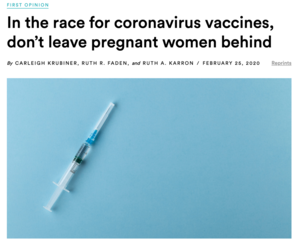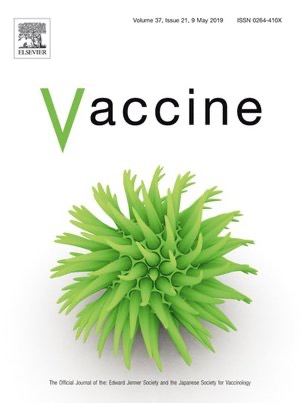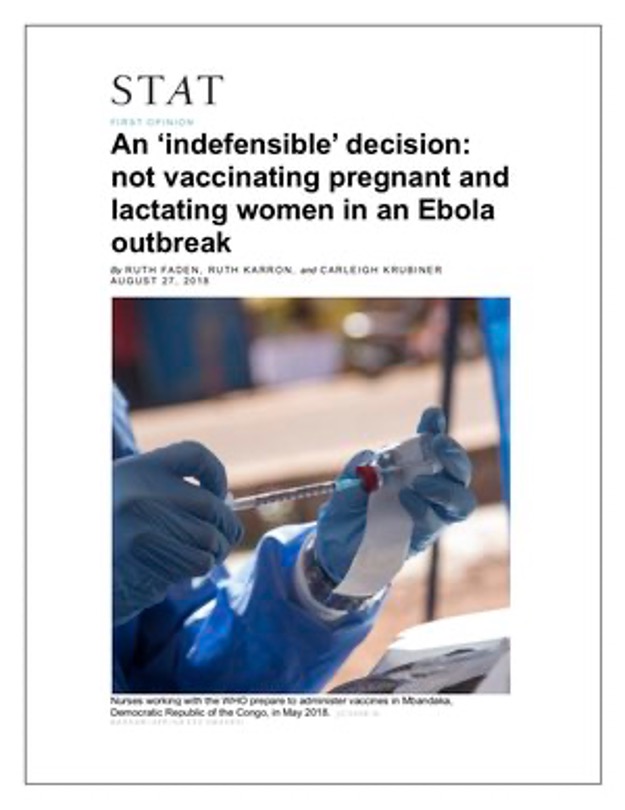IN THE RACE FOR CORONAVIRUS VACCINES, DON’T LEAVE PREGNANT WOMEN BEHIND
Carleigh Krubiner, Ruth Karron, Ruth Faden. 2020. STAT News
“Ensuring there’s a vaccine that can be offered to pregnant women is critical to health equity. While there are only limited data on how severe Covid-19 infection is in pregnancy, data from other coronaviruses suggest that pregnant women may face more severe disease, adverse obstetrical outcomes, and greater mortality from them. Development of coronavirus vaccines that pregnant women aren’t able to use would be not only a tragedy but a grave injustice.”
This Op-Ed provides key steps to help ensure that pregnant women will not be left behind in the development and delivery of COVID-19 vaccines.


